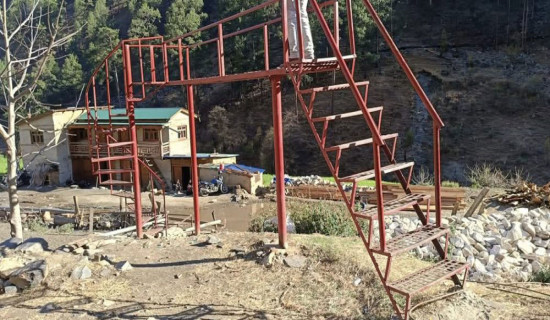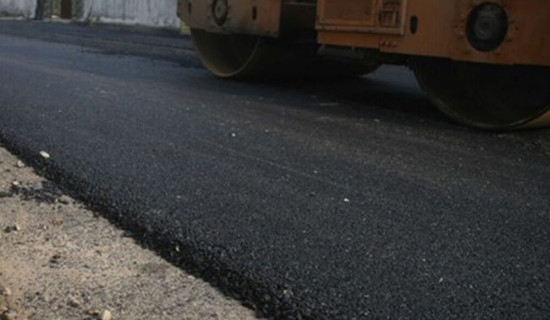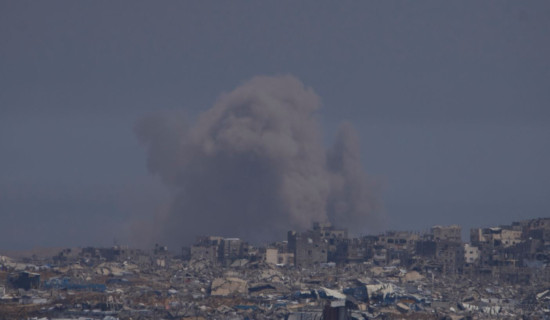- Thursday, 8 May 2025
Mumps viral disease outbreaks in Jhapa
By Bishnu Prasad Pokharel,Damak, July 4: Mumps, a highly contagious viral disease that primarily affects children, continues to spread in Damak and other areas in Jhapa district.
The virus responsible for mumps is transmitted through respiratory droplets from the infected individuals.
According to Pediatrician Dr. Sunil Adhikari from KIOCH (Kathmandu Institute of Child Health) in Damak, around 20 to 25 per cent of the children visit him daily for medical checkups with symptoms related to mumps.
When a person becomes infected with the mumps virus, it can lead to inflammation and swelling of the salivary glands, particularly the parotid glands located near the ears, he said.
This swelling is the characteristic symptom of mumps and often gives the appearance of puffy or swollen cheeks.
Dr. Adhikari said early symptoms such as low-grade fever, headache, fatigue and general discomfort are observed prior to the onset of puffy or swollen cheeks.
“Soon after the parotid glands on one or both sides start to swell, the pain also increases. The swelling, pain and fever may last for a week,” he added.
Currently, no specific cure or medicine was available to treat mumps but supportive care can help alleviate symptoms and promote recovery, he added.
According to him, the symptoms of mumps tend to gradually improve after about a week.
“However, if the patient's health condition worsens, it is advisable to admit them to the hospital for proper care and monitoring. Mumps is typically a self-healing disease,” said Dr. Adhikari.
Pediatrician Dr. Anil Thapa said he was handling eight to 10 mumps patients on a daily basis.
According to him, the cases appear to follow a sporadic pattern.
Health experts have issued a warning to exercise caution due to the transmission of mumps from one person to another through close contact, primarily through respiratory droplets containing saliva, sneezes, or coughs from an infected individual.
Dr. Thapa said it is crucial to take preventive measures, such as practicing good hygiene, covering the mouth and nose while coughing or sneezing, and avoiding close contact with infected individuals.
He stressed the importance of vaccination as the simplest and most effective way to prevent mumps.
However, he expressed concern that there was a lack of interest among people to get vaccinated against the virus.
To address this issue, Dr. Thapa suggested that the government should consider including the mumps vaccine in the national immunization programme.
















